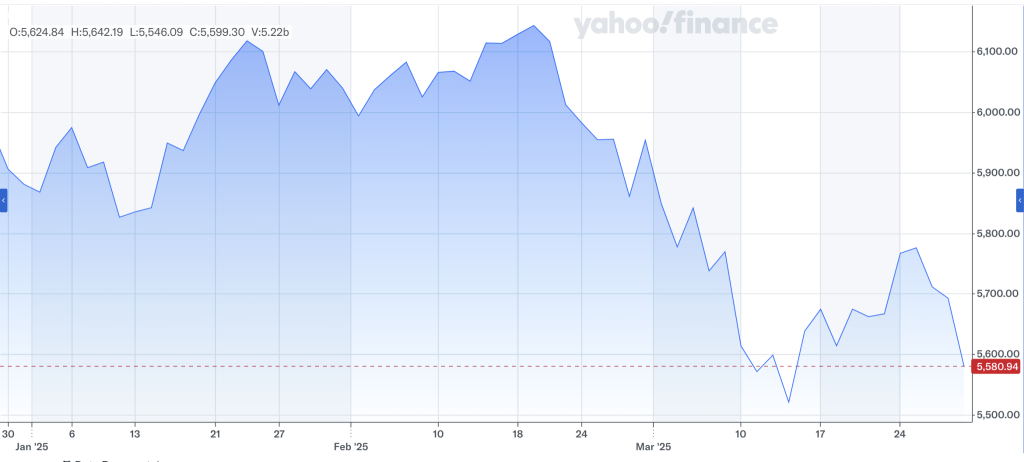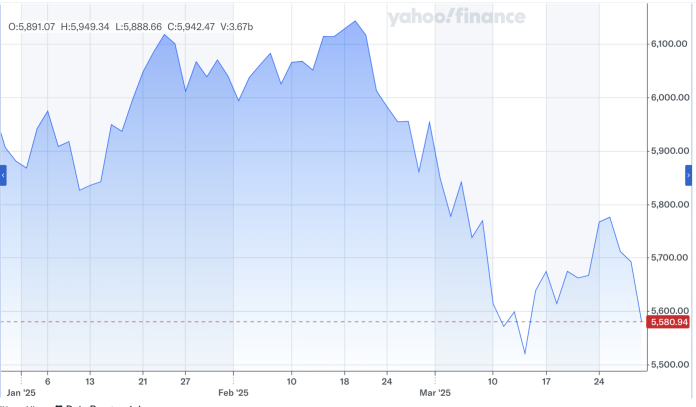Trump’s Tariffs: Is Economic Chaos the Plan?
By Ilene (AI assisted)
In his second term, President Donald Trump is taking a sledgehammer to global trade—again. But this time, the stakes are higher, the moves are broader, and the fallout could be catastrophic. With sweeping tariffs on imports from Canada, Mexico, China, and soon the European Union, the White House is igniting an economic firestorm.
Understanding the Trade Deficit, Tariffs, and the Economy
Trump believes that putting tariffs (taxes on imported goods) will reduce the U.S. trade deficit. The idea is simple: if foreign goods become more expensive, Americans will buy more American-made products instead. But in reality, economics isn’t that simple.
Background: What is the Trade Deficit?
The trade deficit means the U.S. buys (imports) more from other countries than it sells (exports) to them. This results in dollars leaving the U.S. economy to pay for those foreign goods.
Those dollars don’t just disappear. Other countries use them to buy American assets — things like U.S. stocks, corporate bonds (which are loans to companies) and U.S. Treasury bonds (which are loans to the U.S. government).
So while the U.S. sends money abroad for goods, that money comes back in as investment. This is part of how the government and businesses get the money they need to borrow and operate.
What Happens If We Shrink the Trade Deficit?
If tariffs reduce imports, fewer dollars leave the U.S. That also means:
- Fewer dollars return as foreign investment
- There’s less capital available to lend in U.S. markets, as the supply of money available for borrowing shrinks
- When the supply of money falls but demand stays the same, interest rates rise and borrowing becomes more expensive
- If the federal government keeps borrowing heavily (due to large budget deficits), it can crowd out private borrowers like businesses and consumers
Eventually, someone in the economy will borrow less — because of higher costs. Most likely, it will be businesses or consumers, not the government.
Tariffs Raise Prices (Inflation)
On top of this, tariffs make imports more expensive — and U.S. companies often raise their prices in response. That adds to inflation. Higher inflation puts the Federal Reserve in a tough spot:
- It may be forced to raise interest rates to control inflation.
- This adds even more pressure on borrowing — raising costs and slowing demand.
The Big Picture
- Reducing the trade deficit through tariffs doesn’t just change what we buy — it also affects how much capital flows into the U.S., interest rates, and borrowing
- With less foreign money coming in, and inflation rising, interest rates likely go up
- Borrowing becomes more expensive, hurting businesses
- If borrowing and spending fall too much, it can slow the economy and cause a recession
Bottom Line
Tariffs may reduce the trade deficit on paper, but they come with real economic trade-offs:
- Higher prices (inflation)
- Higher interest rates
- Reduced investment and borrowing
- A potential recession
The Playbook: Tariffs, Disruption, and Dollar Devaluation
In February 2025, Trump launched a fresh wave of tariff policies and threats:
- 25% on all goods from Mexico and Canada
- 10% on Chinese imports
- Threats of 200% tariffs on European alcohol
- Plans to penalize countries that import Venezuelan oil
Simultaneously, the administration has floated informal ideas to weaken the U.S. dollar, a move that would increase export competitiveness but also raise import prices and stoke inflation.
The charts below show the effects materializing :
1) Consumer Confidence:
and 2) the stock market

The Damage Is Real — and Predictable
Economists are nearly unanimous: tariffs like these hurt more than they help. They raise prices, slow investment, and provoke retaliation. Meanwhile, a weakened dollar reduces purchasing power, further driving up consumer costs.
Since the new trade war began:
- The U.S. Dollar Index has dropped steadily
- Consumer confidence has been falling.
- Supply chains are destabilizing, especially in autos, agriculture, and retail.
- Global partners are responding in kind, threatening U.S. exports.
This isn’t a surprise. These effects are entirely predictable.
Why Would Trump Do This?
1. He Genuinely Believes It Works
Trump views trade as a zero-sum game. Imports are “bad.” Exports are “good.” He sees tariffs as weapons to win, not taxes on American consumers. Despite expert warnings, he surrounds himself with yes-men and dismisses nuance.
2. He Accepts the Pain as Part of a Bigger Goal
This theory is gaining ground: Trump may know this will hurt, but sees it as necessary to:
- Crush globalism
- Rebuild domestic manufacturing
- Force geopolitical realignments
- Shift power from financial elites to industrial sectors
In this view, short-term chaos is a feature, not a bug.
3. He Wants the Crisis
This is the most dangerous possibility — but not implausible:
- A recession can be weaponized to blame the Fed, Democrats, or “foreign saboteurs.”
- It can justify emergency powers, radical deregulation, or central bank restructuring.
- Trump could offer himself as the “only one who can fix it,” even after breaking it.
This is a well-worn path used by autocrats worldwide: create a problem, then claim exclusive power to solve it.
The Narrative War
Will the public hold Trump accountable for the damage?
That depends. Economic pain is real, but economic causality is murky. Most people feel the cost of inflation or layoffs — but don’t follow the complex policy chain back to tariffs or currency moves.
Trump and his media allies are already spinning:
- “The Fed is tanking the economy.”
- “China, Mexico, Canada, Europe, etc. are cheating us.”
- “This is the price of American greatness.”
The facts may say one thing — but the political narrative will say another.
Conclusion
Whether by ideology, ignorance, or calculation, Trump’s policies are destabilizing the economy at a critical time. With inflation ticking up, consumer confidence collapsing, and global tensions rising, we are now watching an experiment in economic nationalism with very real risks.
The outcome is predictable, making it reasonable to ask whether Trump is deliberately sabotaging the economy for his own purposes.



